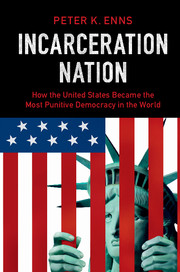7 - Conclusion
Published online by Cambridge University Press: 05 March 2016
Summary
In ones and twos, men got out of the cars. Shadows became substance as lights revealed solid shapes moving toward the jail door. Atticus remained where he was. The men hid him from view. “He in there, Mr. Finch?” a man said … “You know what we want,” another man said. “Get aside from the door, Mr. Finch.”
Of course, Atticus did not budge. Atticus Finch — Tom Robinson's lawyer in To Kill a Mockingbird — reflects an important ideal of the US legal system. Standing between his jailed client and an angry mob, Atticus Finch represents a legal system that offers protection from the public's punitive whims.
Scholars and legal practitioners have long embraced the idea that the US criminal justice system is insulated from public opinion. Based on his travels throughout America in 1831, Alexis de Tocqueville (p. 268) observed:
In the United States it is easy to discover how well adapted the legal spirit is, both by its qualities and, I would say, even by its defects, to neutralize the vices inherent in popular government. When the American people let themselves get intoxicated by their passions or carried away by their ideas, the lawyers apply an almost invisible brake which slows them down and halts them.
The previous chapters call this ideal into question. If an “invisible brake” was applied during the past half-century, it appears to have been no match for the accelerating force of public opinion. We have seen that the public became increasingly punitive during much of the 1960s, 1970s, 1980s, and 1990s and these punitive attitudes exerted a major influence on criminal justice policy and the incarceration rate. If the public had not become so punitive, there is no reason to expect that the United States would have become the world's most aggressive imprisoner.
We saw in Chapter 3, for example, that the politicians most associated with tough-on-crime stances, such as Barry Goldwater and Richard Nixon, appeared to follow — not lead — the public. Indeed, internal memos from Nixon's 1968 presidential campaign suggest that his focus on crime was a direct response to public concern expressed in opinion polls. The analyses in Chapter 4, which showed that presidential rhetoric and congressional hearings followed the public's punitiveness, further illustrate political reactions to the mass public.
- Type
- Chapter
- Information
- Incarceration NationHow the United States Became the Most Punitive Democracy in the World, pp. 156 - 164Publisher: Cambridge University PressPrint publication year: 2016

